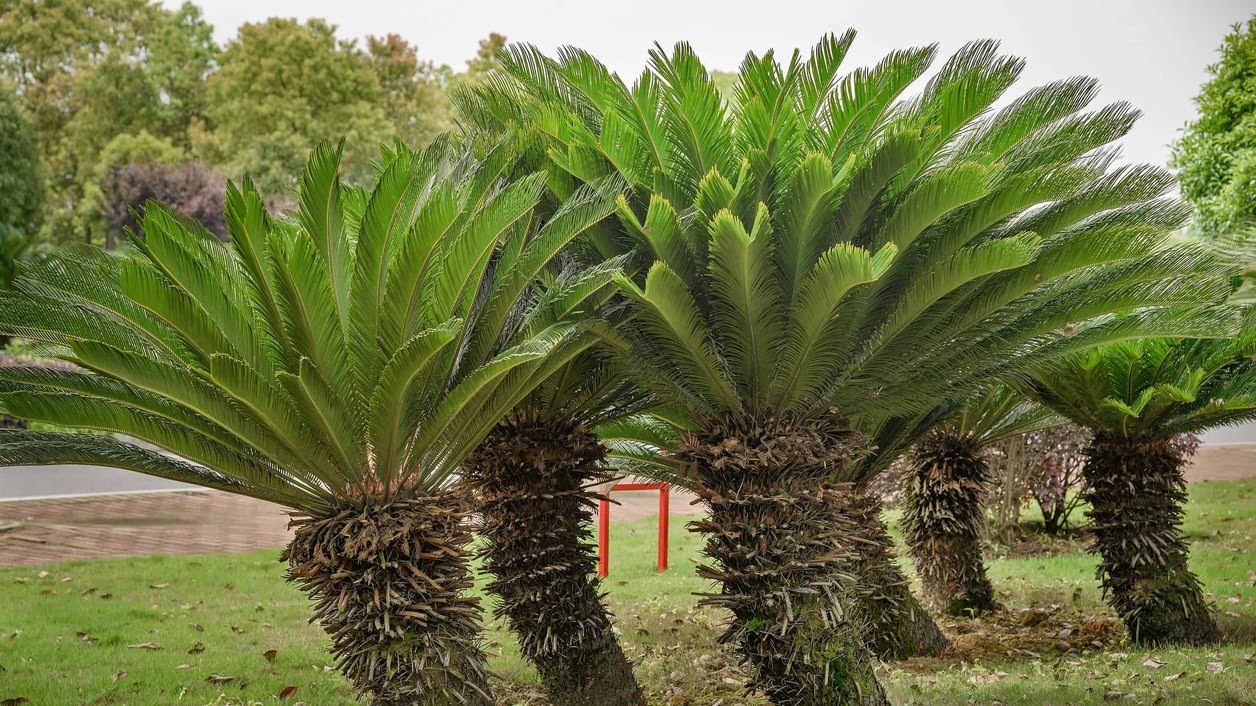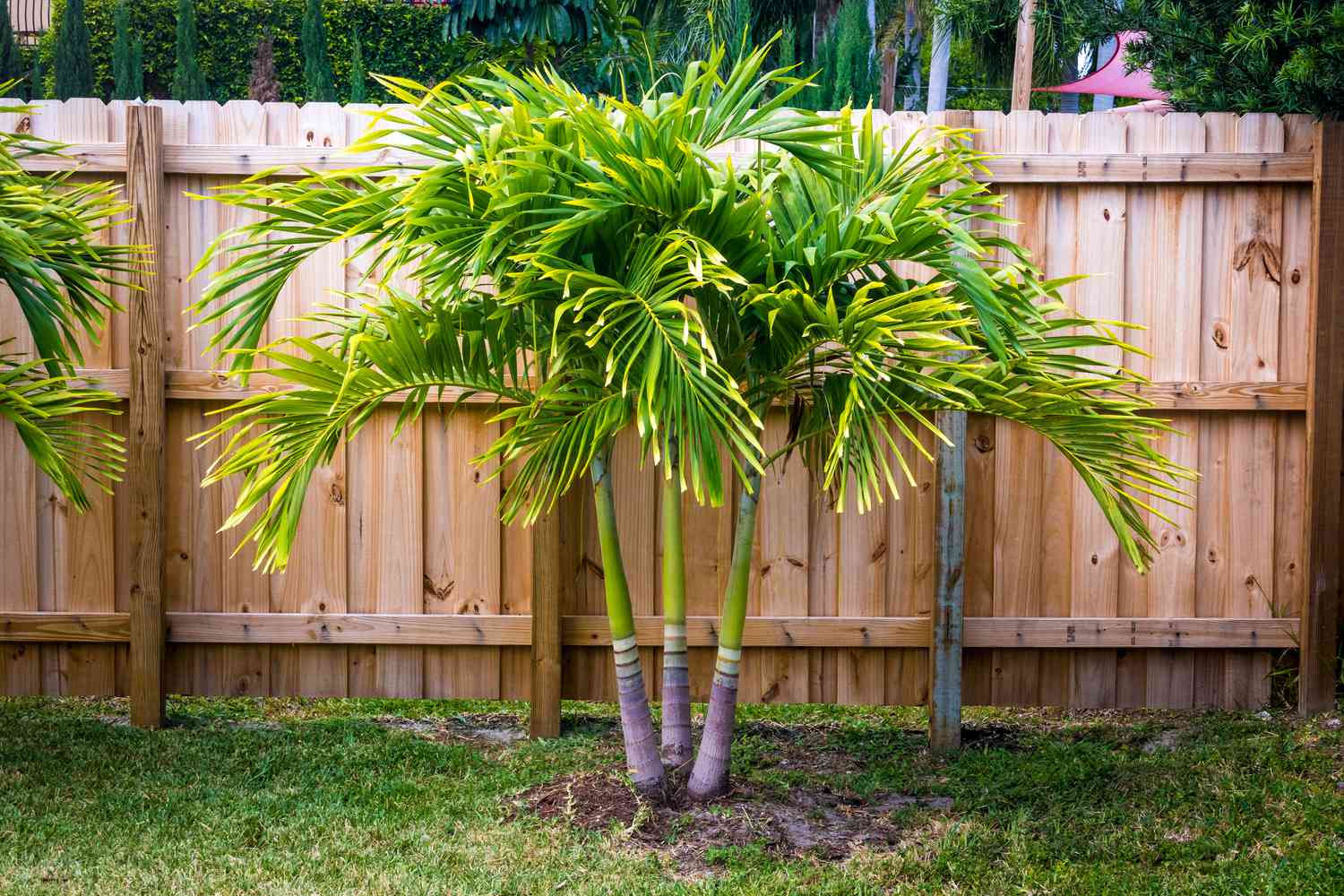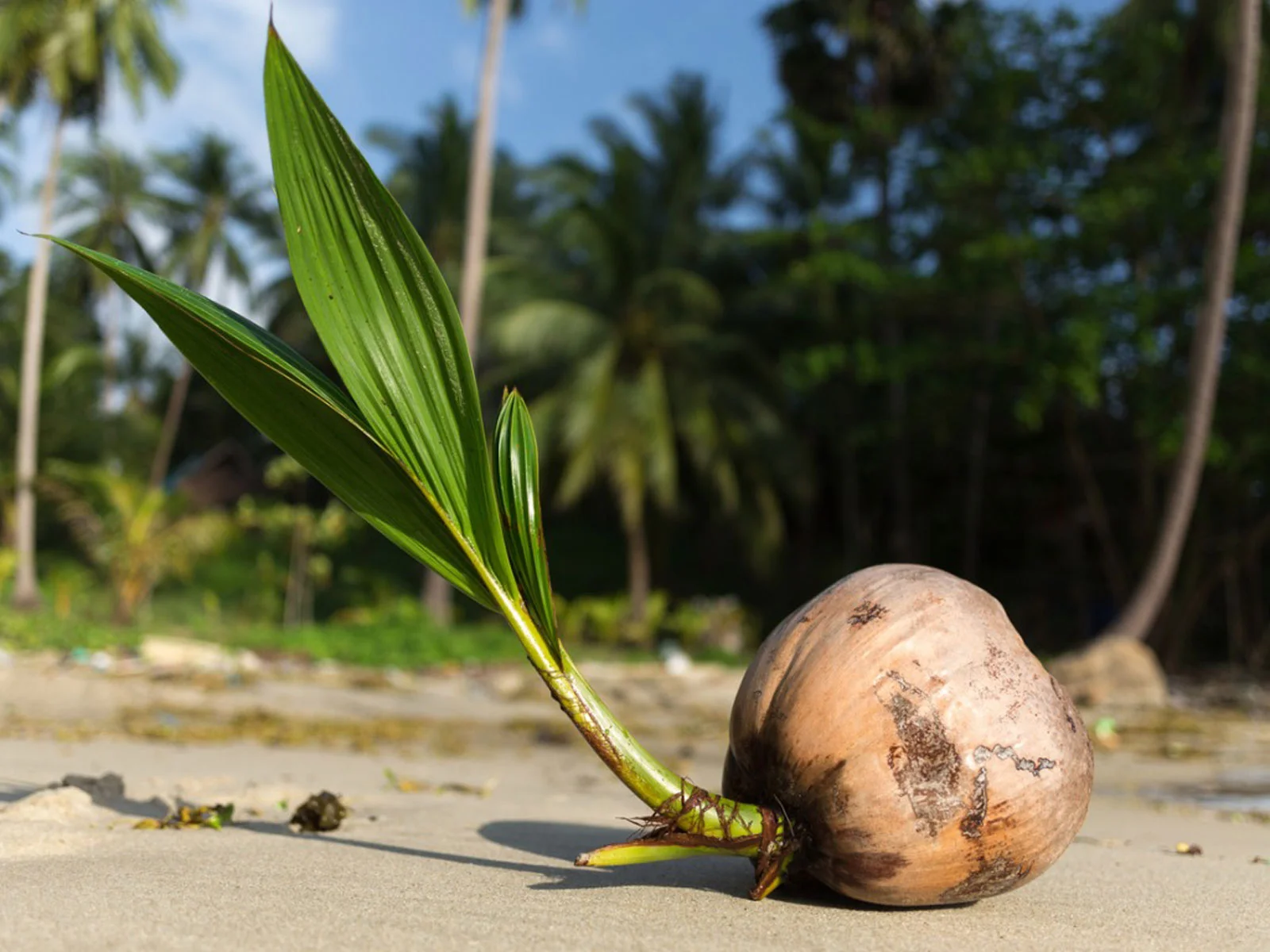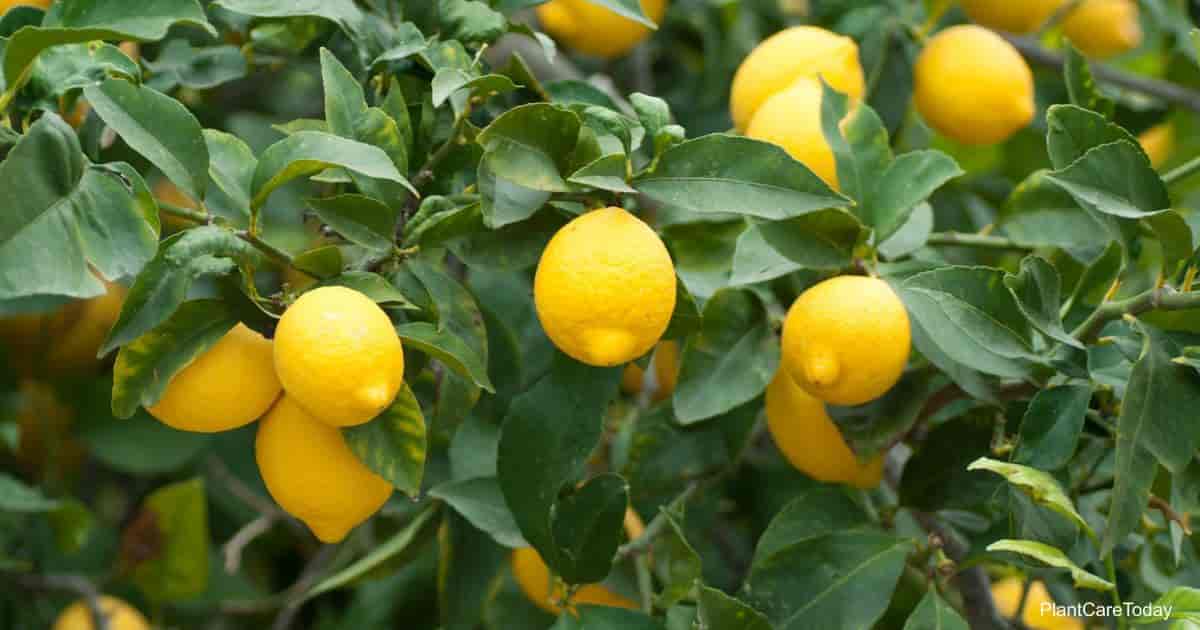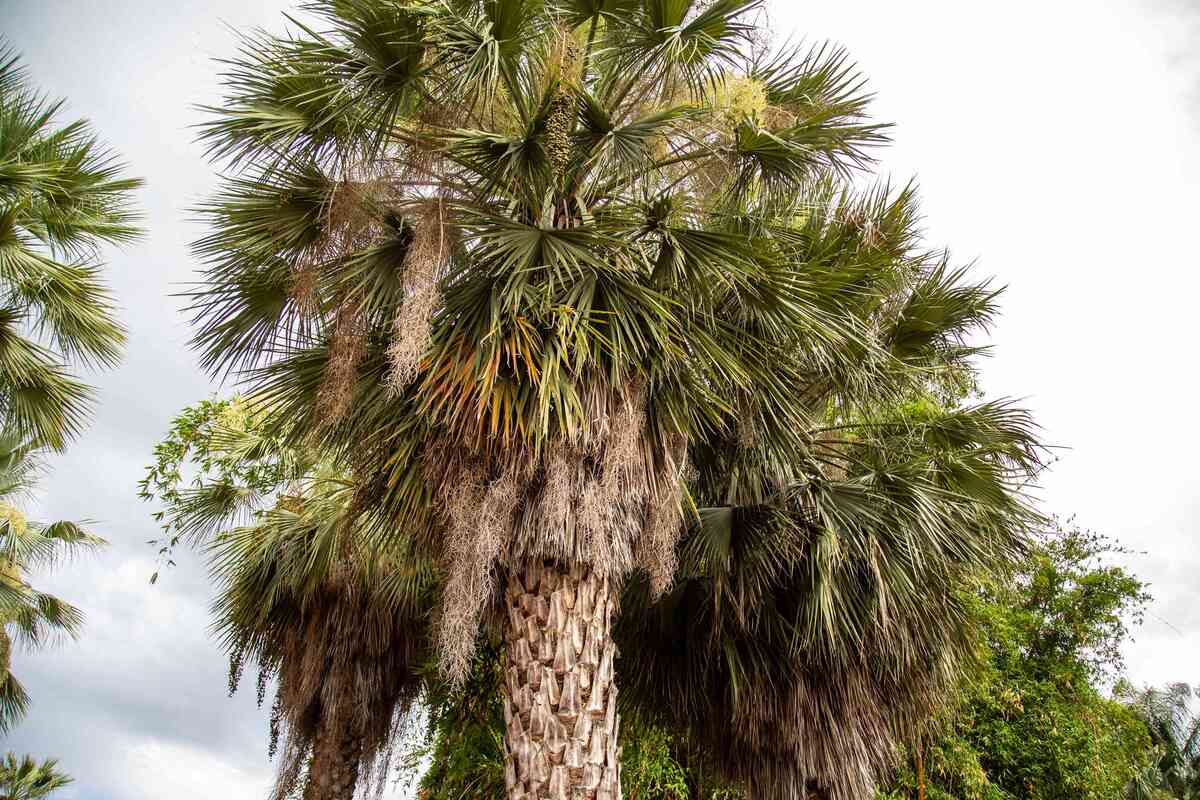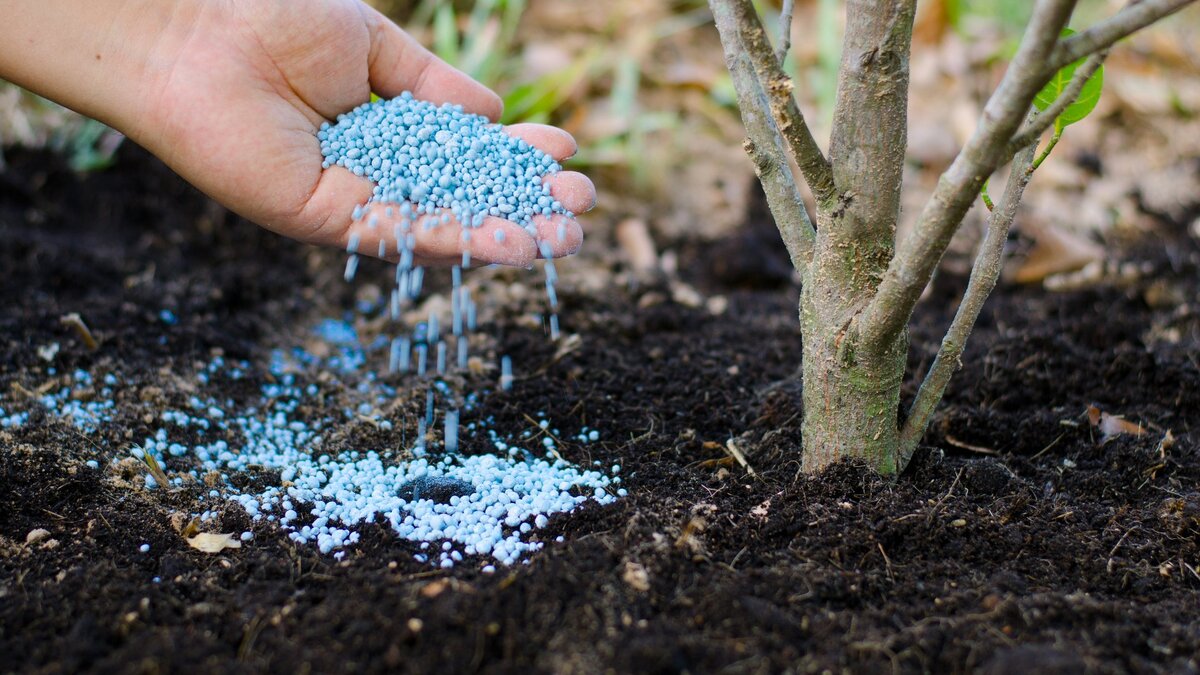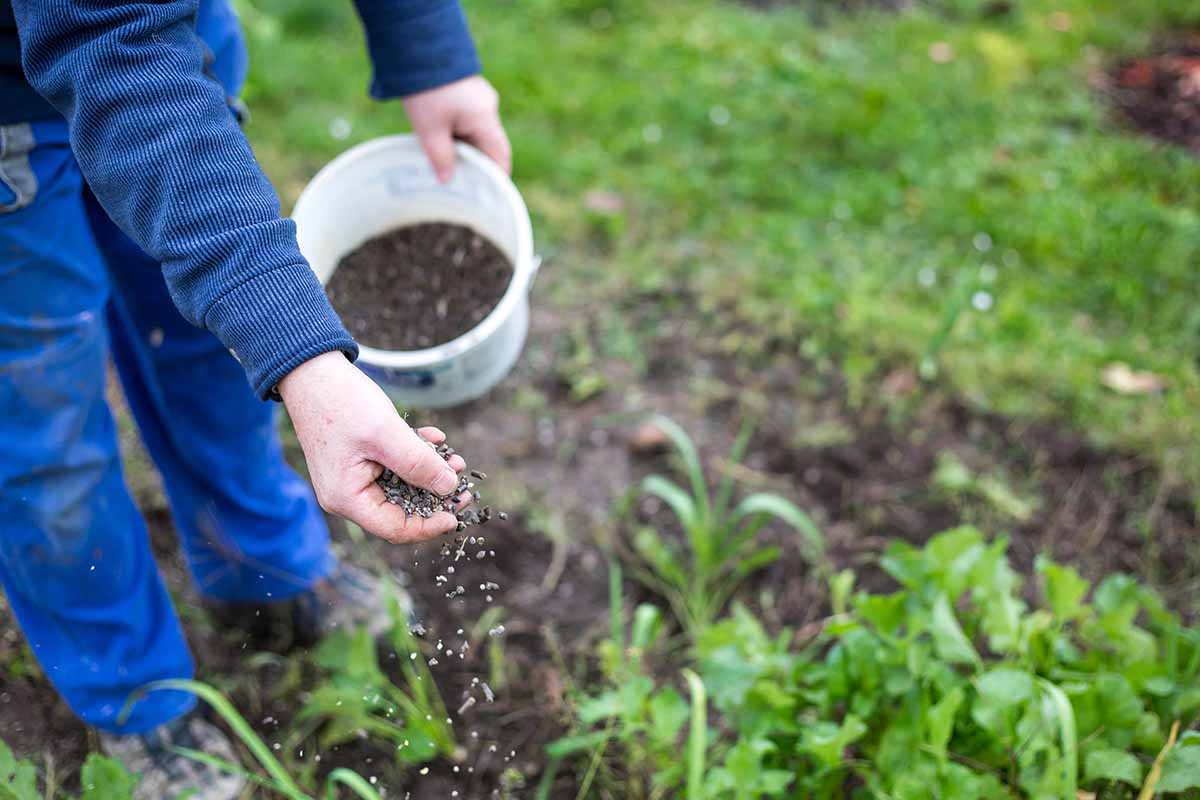Home>Types of Gardening>Ornamental Gardening>What Is The Best Fertilizer For Palm Trees?
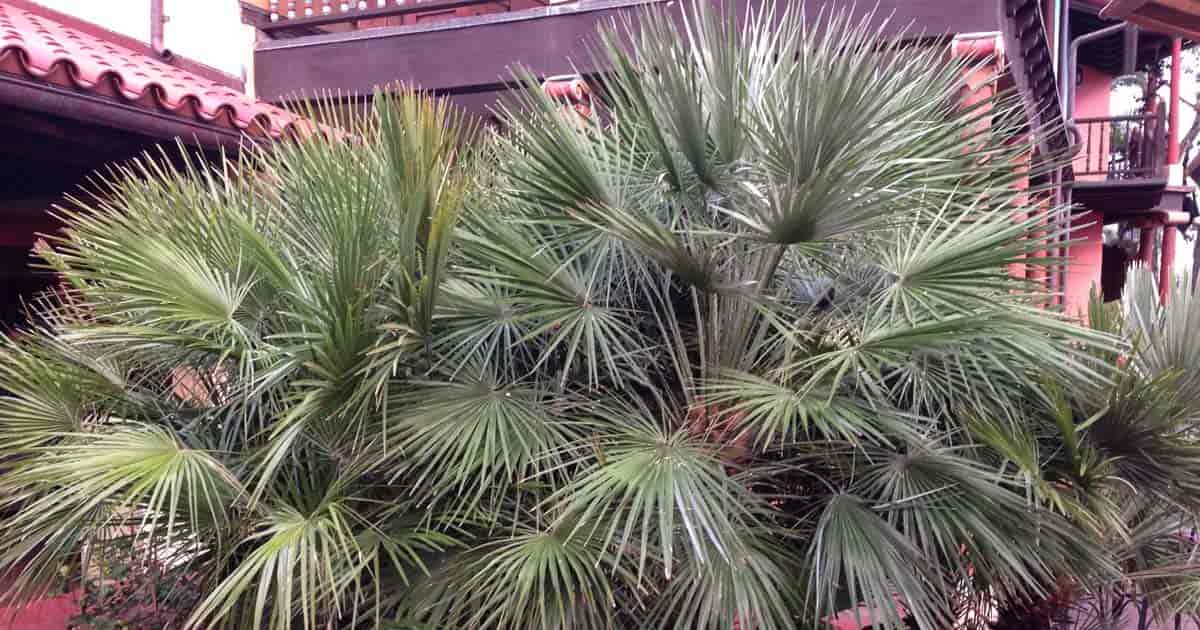

Ornamental Gardening
What Is The Best Fertilizer For Palm Trees?
Modified: January 22, 2024
Discover the perfect fertilizer for your ornamental palm trees and promote healthy growth. Find expert recommendations and tips for ornamental gardening.
(Many of the links in this article redirect to a specific reviewed product. Your purchase of these products through affiliate links helps to generate commission for Chicagolandgardening.com, at no extra cost. Learn more)
Table of Contents
Introduction
Welcome to the world of ornamental gardening, where beauty flourishes and nature comes alive! One of the most enchanting aspects of this hobby is the art of cultivating palm trees. With their elegant fronds and majestic presence, palm trees bring a touch of the tropics to any landscape, whether it be a backyard oasis, a public park, or a grand botanical garden.
While palm trees are known for their resilience and adaptability, they require proper care to thrive and reach their full potential. One crucial aspect of palm tree maintenance is fertilization. Providing the right nutrients is essential for promoting healthy growth, vibrant foliage, and robust root systems.
Choosing the best fertilizer for palm trees can seem like a daunting task, given the myriad of options available in the market. However, by considering certain factors and understanding the specific needs of your palm trees, you can make an informed decision that will benefit both the plants and the environment.
In this article, we will explore the factors to consider when choosing a fertilizer for your palm trees and discuss both organic and synthetic options. We will also delve into the importance of proper application techniques and share some precautions and tips to ensure the well-being of your beloved palm trees.
Factors to Consider When Choosing Fertilizer
When it comes to selecting the right fertilizer for your palm trees, several factors come into play. Understanding these factors will help you make an educated choice and provide your palm trees with the nutrition they need. Let’s take a closer look at what you should consider:
- Nutrient Ratio: Palm trees require a specific balance of nutrients to thrive. Look for a fertilizer with a ratio of nitrogen (N), phosphorus (P), and potassium (K) that is tailored to the needs of palm trees. A recommended ratio is 3:1:3, but consult with a local horticulturist or extension service to determine the ideal ratio for your specific palm tree species.
- Slow-Release Formula: Palm trees prefer a slow-release fertilizer that provides a steady supply of nutrients over an extended period. Slow-release formulas prevent nutrient burn and promote consistent growth without the need for frequent applications.
- Microelements: In addition to the major nutrients (N, P, K), palm trees also benefit from trace elements such as iron, manganese, zinc, and copper. These micronutrients are essential for overall plant health and play a key role in preventing nutrient deficiencies.
Soil pH: Different types of palm trees have varying soil pH preferences. Before choosing a fertilizer, test your soil’s pH level to ensure that it falls within the appropriate range for your palm tree species. Acidic soil may require a fertilizer with sulfur to reduce pH levels, while alkaline soil may benefit from a fertilizer with added iron. - Environmental Impact: Consider the environmental impact of the fertilizer you choose. Opt for products that are eco-friendly, low in phosphorus, and free from harmful chemicals. This not only protects the environment and local water sources but also promotes the long-term health of your palm trees.
By considering these factors, you can select a fertilizer that meets the specific needs of your palm trees and provides them with the optimal nutrition for growth and vitality. Now that we have explored the factors to consider, let’s delve into the best fertilizer options for palm trees.
Best Fertilizer Options for Palm Trees
Now that we understand the factors to consider when choosing a fertilizer for palm trees, let’s explore some of the best options available in the market. Whether you prefer organic or synthetic fertilizers, there are excellent choices for promoting the health and growth of your palm trees. Here are some recommendations:
Organic Fertilizers for Palm Trees
Organic fertilizers offer a natural and environmentally-friendly approach to nourishing palm trees. They provide slow-release nutrients and improve soil quality over time. Some popular organic options for palm trees include:
- Composted Manure: Rich in organic matter, composted manure is an excellent choice for palm trees. It releases nutrients gradually and enhances soil fertility.
- Seaweed Extract: Seaweed extract is derived from seaweed and delivers essential trace elements to palm trees. It stimulates root growth, enhances nutrient absorption, and improves overall plant health.
- Bone Meal: Bone meal is a natural source of phosphorus, which is vital for root development and flower formation. It is particularly beneficial for palm trees during the early stages of growth.
- Fish Emulsion: Fish emulsion provides a rich source of nitrogen and other nutrients to promote vigorous growth in palm trees. It is a concentrated liquid that is easy to apply and quickly absorbed by the plant’s roots.
Synthetic Fertilizers for Palm Trees
Synthetic fertilizers are designed to deliver specific nutrients in a precise manner, making them a convenient choice for many gardeners. Here are some recommended synthetic fertilizers for palm trees:
- Controlled-Release Fertilizers: These fertilizers gradually release nutrients over several months, ensuring a steady supply to the palm trees. Look for products with a slow-release or controlled-release formulation.
- Granular Fertilizers: Granular fertilizers are easy to apply and provide a balanced blend of nutrients. They can be spread evenly around the base of the palm tree and watered in for effective absorption.
- Liquid Fertilizers: Liquid fertilizers are quickly absorbed by the palm tree’s roots and deliver nutrients in a readily available form. They are convenient for frequent or foliar applications.
- Palm-Specific Fertilizers: Some fertilizers are specifically formulated for palm trees, taking into account their unique nutritional requirements. These products often contain the optimal ratio of nutrients for successful palm tree growth.
Remember to follow the manufacturer’s instructions when applying any fertilizer. Now that we have discussed the best fertilizer options, let’s move on to understanding when and how to apply them to palm trees.
Organic Fertilizers for Palm Trees
Organic fertilizers are derived from natural sources and offer a sustainable and eco-friendly approach to nourishing palm trees. They provide slow-release nutrients and improve the overall health of the soil. If you prefer an organic approach to caring for your palm trees, here are some recommended organic fertilizers:
- Composted Manure: Composted manure is an excellent organic fertilizer for palm trees. It is rich in organic matter, providing essential nutrients and improving soil structure. When applying composted manure, ensure that it is well-aged and fully decomposed to avoid any potential issues with weed seed germination.
- Seaweed Extract: Seaweed extract is another beneficial organic fertilizer for palm trees. It contains a wide range of trace minerals and growth-promoting substances that enhance the overall health and vigor of the palm trees. Seaweed extract also helps improve soil structure, nutrient absorption, and resistance to environmental stresses.
- Bone Meal: Bone meal is a natural source of phosphorus, an essential nutrient for root development and flower production. Incorporating bone meal into the soil around palm trees during planting or as a top dressing provides a slow-release source of phosphorus and other minerals. Be sure to follow the recommended application rates to prevent nutrient imbalances.
- Fish Emulsion: Fish emulsion is derived from fish waste and provides a rich source of nitrogen, one of the primary macronutrients required for palm tree growth. This organic fertilizer is readily available and is often used as a foliar spray or soil drench. Fish emulsion not only supplies essential nutrients to palm trees but also improves soil nutrient content and microbial activity.
When using organic fertilizers, it is important to follow the application instructions provided by the manufacturer. Applying these fertilizers during the growing season or as recommended by a horticulturist will help ensure optimal nutrient uptake by palm trees. Additionally, organic fertilizers can be used in combination with other methods, such as mulching and composting, to further enrich the soil and promote overall plant health.
Now that we have explored organic fertilizer options for palm trees, let’s move on to understanding synthetic fertilizers and their benefits.
Synthetic Fertilizers for Palm Trees
Synthetic fertilizers offer a convenient and efficient way to provide the necessary nutrients to palm trees. These fertilizers are formulated with specific ratios of nutrients to meet the demands of palm trees and promote healthy growth. If you prefer using synthetic fertilizers, here are some recommended options:
- Controlled-Release Fertilizers: Controlled-release fertilizers are designed to slowly release nutrients over an extended period. These fertilizers come in granular form and are coated to provide a steady supply of nutrients to palm trees. This slow-release feature helps prevent nutrient leaching and reduces the risk of over-fertilization.
- Granular Fertilizers: Granular fertilizers are easy to apply and widely available. They contain a balanced blend of essential nutrients, including nitrogen (N), phosphorus (P), and potassium (K), as well as micronutrients. Before applying granular fertilizers, make sure to water the soil thoroughly and evenly spread the granules around the palm tree’s base.
- Liquid Fertilizers: Liquid fertilizers provide palm trees with a quick and readily available source of nutrients. These fertilizers are easy to apply through various methods, including foliar spraying or drenching the soil. Liquid fertilizers are especially useful for providing an immediate nutrient boost during periods of rapid growth or recovering from stress.
- Palm-Specific Fertilizers: Some synthetic fertilizers are specifically formulated for palm trees, taking into account their unique nutritional requirements. These fertilizers often contain the ideal ratio of nutrients for optimum palm tree growth. Look for palm-specific fertilizers that provide the necessary macronutrients and micronutrients for healthy foliage, root development, and overall plant vigor.
When using synthetic fertilizers, it is important to follow the manufacturer’s instructions regarding application rates and frequency. Over-application of synthetic fertilizers can lead to nutrient imbalances, burning the plant’s roots, or negatively impacting the surrounding environment. It is recommended to fertilize palm trees during the active growing season when they have higher nutrient demands.
In addition to synthetic fertilizers, it is beneficial to incorporate other gardening practices such as regular watering, proper mulching, and soil testing to ensure the overall health and vitality of palm trees.
Now that we have explored both organic and synthetic fertilizer options for palm trees, let’s move on to understanding when and how to apply fertilizers to ensure optimal results.
When and How to Apply Fertilizer to Palm Trees
The timing and proper application technique of fertilizers are crucial for maximizing their effectiveness and promoting healthy palm tree growth. Here are some guidelines to follow when applying fertilizer to your palm trees:
- Timing: The best time to fertilize palm trees is during their active growing season, which typically occurs in spring and summer. Avoid fertilizing during periods of dormancy, as the palm trees are not actively taking up nutrients.
- Soil Moisture: Before applying fertilizer, ensure that the soil is adequately moist. Water the palm tree thoroughly a day or two before applying the fertilizer to help promote nutrient absorption and prevent potential root damage.
- Application Rate: Carefully measure and follow the recommended application rate provided by the fertilizer manufacturer. Over-fertilization can be detrimental to the palm trees and may result in nutrient imbalances or burn the roots.
- Application Technique: For granular fertilizers, evenly distribute the fertilizer around the palm tree’s base, extending it slightly beyond the drip line. Avoid direct contact with the trunk, as this can cause damage. For liquid fertilizers, apply according to the manufacturer’s instructions, either as a foliar spray or by drenching the soil around the palm tree.
- Preventing Runoff: To minimize nutrient runoff, water the palm tree immediately after fertilization. This helps to ensure that the nutrients are absorbed by the roots and reduces the risk of nutrient leaching into the surrounding environment.
It’s important to note that every palm tree is unique, and factors such as age, size, and specific nutritional requirements may differ. Consulting with a local horticulturist or extension service can provide valuable insights into the specific needs of your palm trees and any regional considerations.
Regular monitoring of the palm trees’ response to fertilizer applications is essential. Observe the color and growth of the foliage and pay attention to any signs of nutrient deficiencies or excesses. Adjusting the fertilizer application as necessary based on these observations will help ensure the palm trees receive the appropriate nutrients throughout their growth cycle.
Now that we have discussed when and how to apply fertilizer to palm trees, let’s move on to some precautions and additional tips to keep in mind while fertilizing.
Precautions and Tips for Fertilizing Palm Trees
While fertilizing palm trees is essential for their health and growth, it’s important to take certain precautions and follow best practices to ensure successful results. Here are some precautions and tips to consider:
- Read and Follow Instructions: Always carefully read and follow the instructions provided by the fertilizer manufacturer. This includes the application rate, frequency, and any specific precautions or recommendations.
- Avoid Over-Fertilization: Over-fertilizing palm trees can lead to nutrient imbalances, which may harm the plants. Stick to the recommended application rates and avoid the temptation to apply excessive amounts of fertilizer.
- Avoid Fertilizing Newly Planted Palm Trees: Newly planted palm trees require time to establish their root systems. It is generally best to wait at least 3 to 6 months before applying fertilizer to allow the palm tree to settle in and minimize the risk of root burn.
- Keep Fertilizer Away from Trunk: When applying granular fertilizers, ensure that the fertilizer does not come into direct contact with the palm tree’s trunk. This can cause damage to the tender tissues and increase the risk of disease or pests.
- Water Adequately: Proper irrigation is crucial for the absorption and distribution of nutrients. Maintain a consistent watering schedule and adjust it as needed based on weather conditions and the palm tree’s moisture requirements.
- Monitor Nutrient Levels: Regularly monitor the nutrient levels in the soil to avoid both deficiencies and excesses. Soil testing can provide valuable insights into the specific needs of your palm trees and help you make informed decisions regarding fertilizer application.
- Maintain Overall Plant Health: Fertilizing is just one aspect of palm tree care. To ensure optimal growth and vitality, also focus on other factors such as proper pruning, pest management, and maintaining a healthy soil ecosystem.
- Protect the Environment: Use environmentally-friendly fertilizers that are low in phosphorus and free from harmful chemicals. This will help safeguard local water sources and minimize the impact on surrounding ecosystems.
By following these precautions and tips, you can ensure that your palm trees receive the right amount and type of fertilizer, promoting their overall health and vitality. Remember to keep a record of your fertilizer applications and monitor the response of your palm trees to make any necessary adjustments for future fertilizations.
Now that we have covered the precautions and tips for fertilizing palm trees, let’s wrap up our discussion.
Conclusion
Cultivating and caring for palm trees is a rewarding endeavor that can bring beauty and a touch of the tropics to any landscape. Fertilizing palm trees is a crucial component of their care regimen, ensuring they receive the necessary nutrients for healthy growth and vibrant foliage. By considering factors such as nutrient ratio, slow-release formulas, microelements, soil pH, and environmental impact, you can make an informed choice when selecting a fertilizer.
Organic fertilizers offer a natural and eco-friendly approach, providing slow-release nutrients and improving soil quality. Composted manure, seaweed extract, bone meal, and fish emulsion are excellent organic choices for promoting the overall health of palm trees. On the other hand, synthetic fertilizers provide convenience and precise nutrient delivery. Controlled-release fertilizers, granular fertilizers, liquid fertilizers, and palm-specific fertilizers are effective options for ensuring optimal nutrient uptake.
When applying fertilizer to palm trees, it’s important to consider the timing, soil moisture, application rate, and technique. Following these guidelines will help maximize the effectiveness of the fertilizer and prevent any potential damage. Furthermore, taking precautions such as reading instructions, avoiding over-fertilization, keeping fertilizer away from the trunk, and maintaining overall plant health will contribute to successful palm tree fertilization.
Remember, each palm tree is unique, and it’s beneficial to consult with a local horticulturist or extension service to determine the specific needs and regional considerations for your palm trees. Regular monitoring of your palm trees’ response to fertilization will enable you to make necessary adjustments and ensure their ongoing health and vitality.
With proper fertilization and care, your palm trees will thrive, bringing a sense of tropical paradise to your surroundings. So go ahead, nourish your palm trees, and enjoy the beauty and charm they bring to your ornamental garden!
